Loading
Journal of Mental Health Disorders
ISSN: 2770-761X
Latest Articles
Beyond Case Vignettes: Do Diagnostic Labels Affect How Symptoms of Mental Illness are Perceived?
Alexander Dings , Lara K Kubillus
A long-standing question in clinical psychology concerns the merits and drawbacks of using diagnostic labels in communication about mental illness. A frequent view is that such labels contribute to mental illness stigma, for example by fostering a categorical view of affected people as part of a distinct out-group. Previous research has found some evidence to support such claims, but results are mixed.
J Ment Health Disord, 2025, Volume 5, Issue 1, p1-14 | DOI: 10.33696/mentalhealth.5.030
Expanding Horizons in Anti-GQ1b Antibody Syndrome: Recognizing Atypical and Overlap Forms
Ciro Maria Noioso , Agnese Pecoraro , Gabriella Maria Acerra , Stefano Avventura , Liliana Bevilacqua , Caterina Giordano , Anna Rosa Avallone , Umberto De Marca , Paola Della Valle , Marina Serio , Maurizio Tenuta , Antonella Toriello , Paolo Barone , Claudia Vinciguerra , Giuseppe Piscosquito , Aniello Iovino
Since the initial descriptions of Miller Fisher Syndrome (MFS) and Bickerstaff Brainstem Encephalitis (BBE), substantial advancements have refined our understanding of these disorders, highlighting shared features such as anti-GQ1b IgG antibodies, preceding infectious triggers, and overlapping neurophysiological findings. These commonalities support the hypothesis that MFS and BBE are not distinct entities but rather components of a unified autoimmune condition, often referred to as "Fisher-Bickerstaff syndrome."
J Ment Health Disord, 2025, Volume 5, Issue 1, p15-21 | DOI: 10.33696/mentalhealth.5.031
Navigating Crisis: The Transformative Impact of COVID-19 on Family Support Services in Germany
Nina Weimann-Sandig , Götz Schneiderat , Aileen Völlger
In 2024, we published a study named “COVID-19 as a Driver of Professionalization in Work with Families in Germany". The following text is a commentary on this study. It presents key findings and the study's approach but also contextualizes further questions arising from the post-pandemic period. The article presents a comprehensive examination of the impact of the COVID-19 pandemic on family support services in Germany.
J Ment Health Disord, 2025, Volume 5, Issue 1, p22-29 | DOI: 10.33696/mentalhealth.5.032
English School Principals’ Reflections on Hostility in the Community in the COVID and Post-COVID Era: A Comment
Simon Uttley
Though not a mental health professional, I have benefitted from significant training in mental health first aid, and I encounter the challenges of poor mental health on a weekly, if not daily, basis in my role as a Principal (Headteacher) of an English, publicly funded, all-ability high school, a role I have held in several schools over twenty years, together with professorial roles in higher education, both at the University of Notre Dame (USA), London, and St Mary’s University, England.
J Ment Health Disord, 2025, Volume 5, Issue 1, p30-34 | DOI: 10.33696/mentalhealth.5.033
Suicide Prevention and Stress Management in Farmers: The Overlooked Role of Farm Finances
Anna Marie Scheyett , Jude Oshobughie Edeh
Farmers experience high levels of stress, disproportionately high rates of depression and anxiety, and have suicide rates much higher than the general population. The authors and colleagues have examined the unique characteristics of farmers (high time demands, stigma around mental health needs, lack of mental health knowledge and ability to access services) and how suicide prevention and stress management interventions must be shaped to respect farmers’ needs.
J Ment Health Disord, 2025, Volume 5, Issue 1, p35-39 | DOI: 10.33696/mentalhealth.5.034
The Mental Health Considerations Within the Difficulties Associated with Identifying Victims of Modern Slavery and Human Trafficking
Matthew Davis
The identification of vulnerable individuals who are or have been subjected to abuse and exploitation is vitally important so that survivors can access the specific help and support to assist them recover from their traumatic experiences. This article considers what the main issues, barriers and challenges are for trafficked victims to be positively identified. It also illustrates how mental health workers can play a significant role in identifying those most likely to become victims of human trafficking and support them effectively. These issues are important and valuable to consider as the selection of aspects of the topics to discuss are pertinent especially in light of the lingering effects of the COVID-19 pandemic on people’s mental health.
J Ment Health Disord, 2025, Volume 5, Issue 1, p40-46 | DOI: 10.33696/mentalhealth.5.035
Mental Health and Collective Trauma among Yazidi Genocide Survivors
Jan Ilhan Kizilhan
The Yazidi population has faced systematic persecution, culminating in the 2014 genocide by the so-called Islamic State (IS). This commentary focuses on the impact of collective trauma on Yazidi mental health, focusing on transgenerational trauma, gender-specific experiences, and culturally adapted therapeutic interventions. The discussion highlights the importance of interdisciplinary approaches that consider cultural and socio-political contexts in the treatment of Yazidi survivors. Addressing these complex mental health challenges requires a holistic framework that integrates psychological, social, and legal support mechanisms.
J Ment Health Disord, 2025, Volume 5, Issue 1, p47-49 | DOI: 10.33696/mentalhealth.5.036
Substance Abuse and Psychosis
Ralph Meyers
This commentary deals with our publication from 12.2024, entitled “Early Detection and Treatment Options for Psychosis in Transition from Childhood to Adolescence: A Review About Three Decades of Psychiatric Clinical Experience”. The article delves into the complex relationship between substance abuse and psychosis, focusing on the critical role of early detection, family involvement, and continuous monitoring in managing psychosis, particularly during the transition from childhood to adolescence.
J Ment Health Disord, 2025, Volume 5, Issue 1, p50-55 | DOI: 10.33696/mentalhealth.5.037
Measuring the Effectiveness of Navy Embedded Mental Health: Supporting Warfighting Readiness
Robert D. Lippy
This commentary is based on the author’s chapter entitled “The Future of Embedded Mental/Behavioral Health in the Military” in the recently published book Embedded Behavioral Health in the Military: A Guide for Behavioral Health Officers and Leaders. This commentary expands on the book chapter’s discussion of the value and effectiveness of embedded mental health (EMH). In this commentary, the author presents reasons why the ultimate measure of effectiveness of EMH is to return Service members to duty in direct support of the warfighting readiness mission.
J Ment Health Disord, 2025, Volume 5, Issue 1, p56-60 | DOI: 10.33696/mentalhealth.5.038
A Symptomatic and Cosymptomatic Picture of Autism
Michele Di Salvo
This article introduces and attempts to summarize some descriptive clinical-medical aspects of the autism condition. The purpose is to give a common knowledge base of what are pathological symptoms, characteristics of autism and secondary and related pathologies. In this picture, it will become clear that no symptom is single or isolated but the damage concerns a circuit, a higher function, a more complex system. Focusing on one aspect, one symptom and a single set of symptoms distracts from a general, overall picture. We have chosen not to unify them in order to also allow an articulated understanding of the characteristic, symptomatological, and psychological-emotional picture.
J Ment Health Disord, 2025, Volume 5, Issue 1, p65-79 | DOI: 10.33696/mentalhealth.5.040
Addiction and Health: Social Perspectives for Addiction Prevention and Addiction Support
Knut Tielking
The article aims to show that a social perspective on addiction as a disease in the sense of a bio-psycho-social understanding of health and disease can meaningfully broaden the often medical view of addiction problems and contribute to addressing addiction as a social problem in a way that reduces stigma.
J Ment Health Disord, 2025, Volume 5, Issue 1, p80-83 | DOI: 10.33696/mentalhealth.5.041
Updates from the Past 10 Years of Scholarly Inquiry on Clinical Interventions to Empower Older Women
Jennifer L. O’Brien
This author’s contribution, “Clinical Interventions to Empower Older Women” drew on topical research related to older women’s mental health and offered concrete directions for mental health clinicians to explore with older women. This commentary offers an update on the last ten years of research in this area and focuses on the impact of the COVID-19 pandemic on the landscape of older women’s mental health needs and related clinical and non-clinical interventions.
J Ment Health Disord, 2025, Volume 5, Issue 1, p61-64 | DOI: 10.33696/mentalhealth.5.039
An Expanded Y Model: Blending Psychotherapy Practices
Stacey Roles
This commentary builds upon Chapter 18 of The Nurses’ Guide to Psychotherapy, which discusses the importance of training, supervision, and theoretical grounding for nurses and clinicians practicing differing types of psychotherapy. While the original chapter introduces the Y Model of Psychotherapy as a way to conceptualize core therapeutic skills and continues on to introduce the Y Model Restructured: Structured and Unstructured Therapies, adapted from Goldberg & Plakun (2013), this commentary offers a novel contribution: the Expanded Y Model.
J Ment Health Disord, 2025, Volume 5, Issue 1, p87-90 | DOI: 10.33696/mentalhealth.5.043
The Frequency of Emergency Department and Crisis Services Visits for Patients with Borderline Personality Disorder with Differing Models of Care
Ramamohan Veluri , Stacey Roles
Frequent users of the emergency department (ED) are a small percentage of ED patients but account for a large percentage of visits. Given the cost to the health care system, it is important to explore strategies to prevent unnecessary visits. A prospective chart review of frequent users diagnosed with psychiatric illness in Emergency and Crisis services at one hospital was conducted. Detailed analysis was also completed on the subgroup of these patients diagnosed with borderline personality disorder (BPD) and/or self-harming behaviors to determine the impact of two models of psychiatric care on subsequent crisis or ED visits in the year after the index visit.
J Ment Health Disord, 2025, Volume 5, Issue 1, p93-97 | DOI: 10.33696/mentalhealth.5.045
The Role of Palliative Medicine in Poor and Rich Countries
Jürgen Wacker
While in some European countries half of the population dies in nursing homes, this is the exception in African countries, especially since there are only a few nursing homes there. This is not only due to the significantly lower proportion of people over 65 years of age mentioned above, but above all to the willingness of the African extended family to look after the mother and father at home, even outdoors 'in the sacred palm grove' of the village.
J Ment Health Disord, 2025, Volume 5, Issue 1, p84-86 | DOI: 10.33696/mentalhealth.5.042
The Changing Conception of Methodology: A Commentary on the Application of User Centric Design
Nada Nasser Al Subhi , David Bell
This article provides a commentary on the study conducted by Al Subhi et al. [1], in this special issue on mental health disorders. Al Subhi et al., provide concise summaries of the literature in the field of design thinking. This encompasses methodologies such as a user-centric framework. In general, literature is contrasted and extracts valuable methodological knowledge that is necessary for the implementation of dynamic processes in health institutes.
J Ment Health Disord, 2025, Volume 5, Issue 1, p98-101 | DOI: 10.33696/mentalhealth.5.046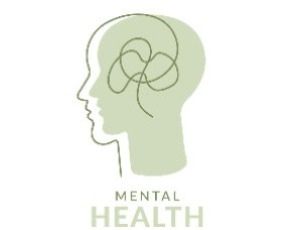
ADHD, Dysgraphia, and Giftedness
Hanna David
The study of dysgraphia, which can be summarized as handwriting impairment, has developed in the last few decades concurrently with a deeper understanding of this neurodevelopmental disorder that affects many areas of life for everybody who suffers from it, but mainly children and adolescents. Though the rate of dysgraphia decreases when growing up, there is still a substantial number of children who suffer from it for the rest of their lives, many of whom are not diagnosed. Among gifted children, the problem of not being diagnosed at all or misdiagnosed is more common than among the non-gifted.
J Ment Health Disord, 2025, Volume 5, Issue 1, p105-115 | DOI: 10.33696/mentalhealth.5.048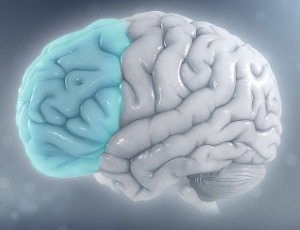
Seeds of a New Society: The Seychelles National Youth Service (NYS) as a Prefigurative Form for Mental Health and Wellbeing
Simon Murray
At the invitation from the editor of the Journal of Mental Health Disorders, the following commentary reflects on the possible ways in which a radical and progressive model of secondary education—the Seychelles National Youth Service—held out the prospect of changing the conditions for mental health and wellbeing of Seychellois people, both young and old. This invitation was prompted by the editor’s reading of an essay I wrote entitled ‘The Seychelles National Youth Service (NYS): Fragments, Thoughts and Reflections on an Experiment in Democratic Education’ for an edited collection entitled Designing Democratic Schools and Learning Environments a Global Perspective.
J Ment Health Disord, 2025, Volume 5, Issue 1, p124-128 | DOI: 10.33696/mentalhealth.5.050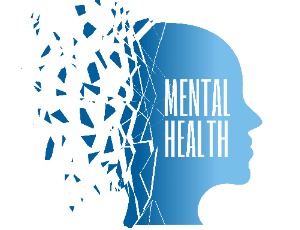
Exploring the Impact of Prosocial Behavior and Aggression on Positive Mental Health
Md. Muzahid Islam , Afshana Mimi , Masom Mia , Pramath Chandra Sarker , Murshida Khatun , Palash Kumar Sarker
Keeping positive mental health is essential, as it promotes overall wellness, strengthens endurance, nurtures significant relationships, and provides a framework for personal as well as professional fulfilment. The present research investigates the complex associations between prosocial behavior, aggression, and positive mental health in a range of social conditions with the aim of discovering subtle variations influenced by age groups, gender, and the type of residence. In this study, 405 participants were recruited using multi-stage random sampling.
J Ment Health Disord, 2025, Volume 5, Issue 1, p132-145 | DOI: 10.33696/mentalhealth.5.052
The Importance of Informed Consent to Overcome Force, Fraud, or Coercion in the Trafficking of Persons for Organ Harvesting
Luz E. Nagle
The trafficking in persons for organ harvesting is a severe form of human trafficking occurring worldwide. In some countries, commercial organ harvesting is unrecognized as a criminal offense, and in a few countries, the means element of force, fraud, or coercion as established under international law is absent in domestic anti-human trafficking legislation. These shortcomings present significant obstacles for holding commercial organ brokers and corrupt medical facilities accountable for human rights violations against vulnerable people who give up their organs for little (and sometimes no) financial gain and a lifetime of physical and emotional health issues.
J Ment Health Disord, 2025, Volume 5, Issue 1, p146-150 | DOI: 10.33696/mentalhealth.5.053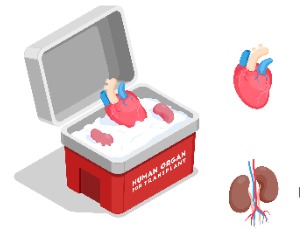
U.S. Policies Addressing Mistreatment of Elder and Adults with Disabilities
Sonia Salari
The U.S. population is rapidly aging, which is expected to increase the incidence of mistreatment of elder and disabled adults. There exist a variety of types of abuse, neglect and exploitation, including self-neglect and abuse. The relationship between the victim and perpetrator could include intimate partners or other family, especially for women. Policies and programs have been geared mostly toward tertiary prevention, responding after a tragedy has already caused trauma. State laws define elder and disabled adults as vulnerable adults and maltreatment should be reported. However, there is vast underreporting of these crimes. Adult Protective Services is not as developed or well-funded as Child Protective Services.
J Ment Health Disord, 2025, Volume 5, Issue 1, p151-159 | DOI: 10.33696/mentalhealth.5.054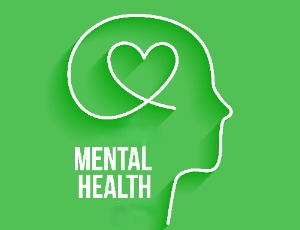
EEG at the Edge: Signals, Selves, and Systems
Marco Cursi , Anna Bellini , Massimo Filippi
Electroencephalography (EEG) is undergoing a profound transformation, from a passive diagnostic tool to an active interface for communication, intervention, and neuroadaptive control. This commentary explores the current state and future trajectories of EEG-based technologies, focusing on emerging paradigms that redefine the role of the brain within technological and therapeutic environments. We begin by examining the digital present: while EEG systems are now more portable, connected, and computationally empowered than ever before, technical limitations and interpretive bottlenecks persist.
J Ment Health Disord, 2025, Volume 5, Issue 1, p116-123 | DOI: 10.33696/mentalhealth.5.049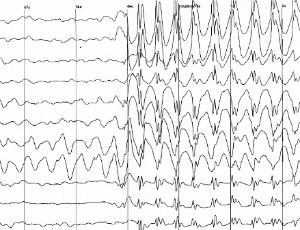
About Scientific Archives
Scientific Archives is a global publisher initiated with the mission of ensuring equal opportunity for accessing science to research community all over the world. Spreading research findings with great relevance to all channels without any barrier is our goal. We want to overcome the challenges of Open Access with ensured quality and transparency.
